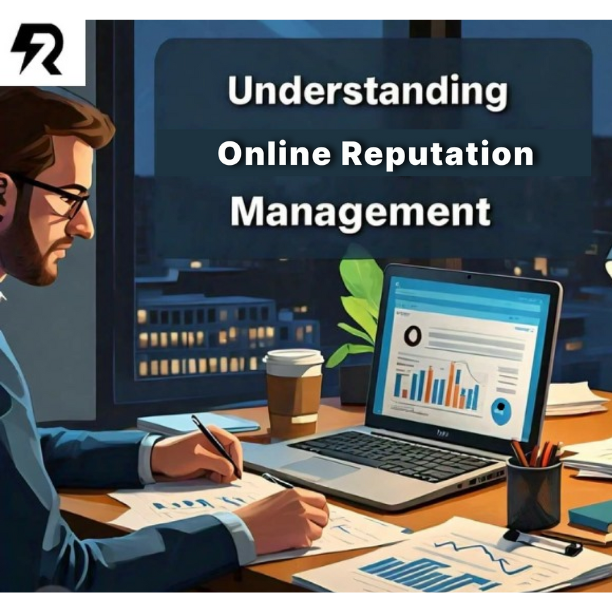RSquare Media was Live at Times Square, NYC – April 19, 2019 to remind the world of our effective Reputation Repair services
Safeguarding Your Online Reputation
In today’s digital age, our online reputation precedes us. It holds significant weight for both individuals and businesses. A positive reputation fosters trust, loyalty, and success. Conversely a negative online presence can lead to lost business, damaged relationships, and missed opportunities.
This article explores what reputation management is and why it matters. We’ll also delve into some key strategies for building and maintaining a strong online reputation.
What is Reputation Management?
Gartner Glossary, mentions that reputation management is part of a comprehensive organizational strategy that implicates most business functions in some capacity, including communications, marketing, legal, customer experience, and sales and loyalty.
Reputation management is the practice of influencing how you or your business are perceived online. It involves monitoring online conversations, addressing negative feedback, and strategically promoting positive content.
It includes monitoring online references, swiftly addressing negative criticism or reviews, and actively promoting positive information to improve the company’s image.

Why is Reputation Management Important?
Trust and Credibility
A positive online reputation builds trust and positions you as a reliable source or business. Trust is a fundamental element in building consumer loyalty and fostering long-term connections.
Customer Acquisition and Retention:
People are more likely to do business with someone they trust. A strong reputation can attract new customers and retain existing ones. Proactive reputation management helps reduce reputational risks and protect your firm from future catastrophes. To limit the impact of unfavorable news and safeguard your brand’s integrity, remain watchful, resolve issues swiftly, and keep communication channels open.
Competitive Advantage
In a crowded marketplace, a positive online reputation can set you apart from the competition. It positions you as a leader in your industry, making it easier to win over customers and secure partnerships.
Key Strategies for Reputation Management
- Monitor Your Online Presence: Regularly search for your name or business name to see what information appears online. Pay attention to review sites, social media platforms, and search engine results.
- Claim and Optimize Online Profiles: Claim and optimize your profiles on social media platforms and relevant business directories. Ensure your information is accurate and up-to-date.
- Engage with Your Audience: Respond to comments and reviews, both positive and negative. Be professional, courteous, and address any concerns promptly. Engage with your audience on social media by sharing valuable content and participating in discussions.
- Proactively Share Positive Content: Regularly share valuable and informative content that showcases your expertise or your business’s offerings.
- Encourage Positive Reviews: Ask satisfied customers to leave positive reviews online.
- Address Negative Reviews: Don’t shy away from negative feedback. Acknowledge the reviewer’s concerns and outline the steps you’re taking to address the issue.
Real-life lessons from online reputation management company stories
KFC
In 2018, an almost unthinkable problem befell KFC UK – the fried chicken chain ran out of chicken. Supplier problems led to branches being unable to serve the majority of their normal menu items, leaving customers frustrated and confused. Their online reputation suffered.
Fortunately, the brand was quick to respond with a pitch-perfect communications strategy as part of an online reputation management drive. As well as unreservedly apologizing for the gaffe, they ran some tongue-in-cheek advertising that prompted customers to empathize with their embarrassing predicament.
UNITED AIRLINES
United faced a massive backlash after a video went viral showing a passenger being forcibly removed from an overbooked flight. The footage spread rapidly across social media and news platforms, leading to widespread outrage and significantly tarnishing the airline’s reputation. Customers expressed dissatisfaction by flooding review sites with negative comments and calling for boycotts, causing United’s stock to plummet and resulting in an estimated loss of $1.4 billion in market value within a single day.
This scandal highlights how quickly negative press can spiral out of control and damage a business’s reputation. In the wake of the incident, United had to implement extensive damage control measures, including public apologies, policy changes, and a multi-million dollar campaign to rebuild its image. Had United employed online reputation management services like Bazooka, they could have mitigated the damage more swiftly. By removing harmful content from search engines and social media, addressing customer complaints proactively, and restoring their brand image more effectively, United could have managed the crisis better and protected their long-term business interests. This example underscores the critical need for businesses to invest in comprehensive reputation management strategies to navigate and recover from such crises.
Reputation management is an ongoing process that requires diligence, strategy, and a proactive approach. By monitoring your online presence, engaging with your audience, and leveraging customer feedback, you can build and maintain a positive reputation that enhances your brand’s success. Remember, in the digital age, your reputation is one of your most valuable assets – protect it wisely.
Partner with Us for Expert Reputation Management
Navigating the complexities of reputation management can be challenging, but you don’t have to do it alone. Our team of experienced professionals at Rsquare Media specializes in protecting and enhancing your brand’s reputation. From proactive monitoring and engagement to crisis management and strategic communication, we offer comprehensive solutions tailored to your unique needs.
